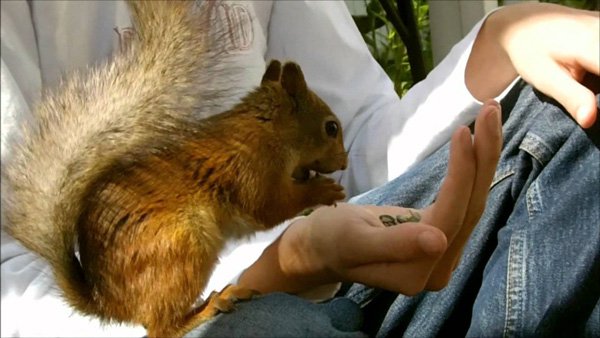
Feline Immunodeficiency Virus is a pathogen that is often recorded in cats. It causes an AIDS-like chronic illness in felines.
Feline Immunodeficiency Virus is a viral disease-causing agent that is often recorded in domestic cats around the world. The pathology that it causes is known as Feline Acquired Immunodeficiency Syndrome, a long-term disease marked by lowered resistance of the animal's defense system, leading to various opportunistic infections.
This virus, also known as FIV, is often recorded in free roaming outdoor cats. Once the virus enters the victim's body it spreads to the lymphatic system. Next it may lead to feverish condition and other relatively mild symptoms before becoming dormant, just like the Human Immunodeficiency Virus, for a long time. After a period of several months or years, the virus may finally reemerge and attack the body's protective white blood cells - lowering their numbers and as a result weakening the diseased animal's defensive capability to a degree that makes it quite exposed to opportunistic illnesses.
Even with the illness and risk of death associated with FIV, exposure to it is not always lethal. Often the cats act as carriers and with a nutritious diet and good veterinary care, they can live a normal and healthy life for some time. Alongside the added care it is important that the feline be sterilized and not go outdoors where it may infect other cats or acquire other illnesses. If there are other felids in the vicinity, they may be separated. Usually though the risk of transmission to other house cats is low in a normal household. The virus does not infect other animals and people. Therefore there is no need to euthanize a cat that has been diagnosed with FIV. The Association of Feline Practitioners recommends against it and advises routine checkup and care.
In order to prevent your
pet from contracting this disease, make sure that it doesn't go
outdoors unsupervised for long periods of time. Spayed or neutered cats
and the ones that stay indoors are the ones least likely to come into
contact with the virus. A vaccine is available that is said to protect
against FIV but its efficacy is not firmly established at the moment.
Therefore, at the moment, prevention is better than cure!
Article Tags: Feline Immunodeficiency Virus, Feline Immunodeficiency, Immunodeficiency Virus
 Chicken Runs: Here's a Shortlist of What to Expect When Buying
Chicken Runs: Here's a Shortlist of What to Expect When Buying
 Italian Greyhound Longevity And Hereditary Health
Italian Greyhound Longevity And Hereditary Health
 How To Keep Dogs Safe Around Horses When Out On A Walk
How To Keep Dogs Safe Around Horses When Out On A Walk
 Understanding Your Bird - The Basics
Understanding Your Bird - The Basics
 Gift your Pets a Warm, Stay in Cosy Chicken Coops
Gift your Pets a Warm, Stay in Cosy Chicken Coops
 Learning More About The Siberian Husky Personality
Learning More About The Siberian Husky Personality
Copyright © 2005-2016 Pet Information All Rights Reserved
Contact us: www162date@outlook.com